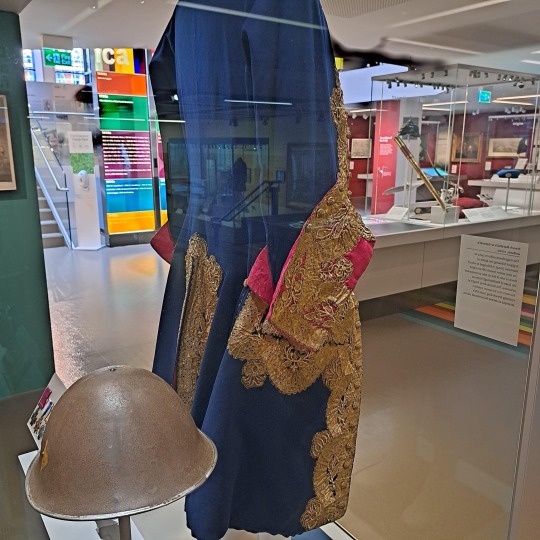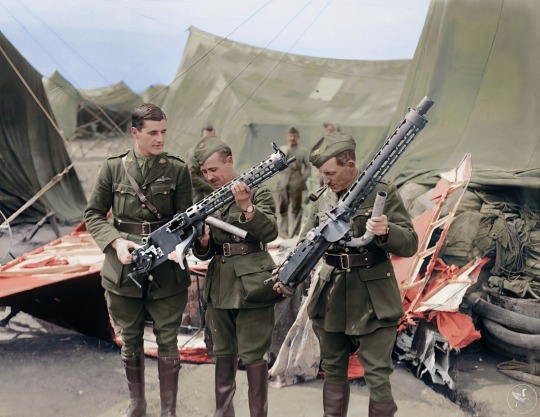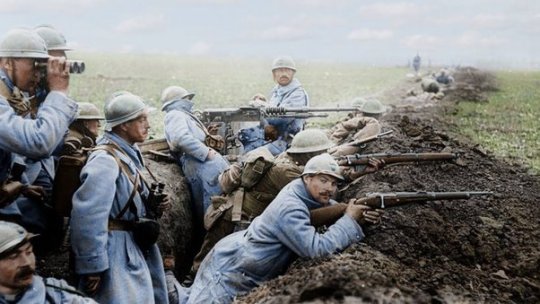#French army
Explore tagged Tumblr posts
Text

French uniforms
19 notes
·
View notes
Photo
Alpine Hunters. Elite mountain troops of the French Army since 1888.
This uniform is from 1891 to 1940

Chasseurs Alpins
20 notes
·
View notes
Text

The HK416 F-S is an interesting variant, adopted by France to replace the FAMAS, is merges features from the original A1, like the sloped receiver and furniture, and the A5 that most of Europe is adopting.
#hk416#Hk416a5#Hk416 F-S#French army#French military#Eotech#Geissele#heckler & koch#heckler and koch#H&K#HK
87 notes
·
View notes
Text

Australian soldiers wearing respirator gas masks, Ypres, September 27, 1917
#history#the first world war#wwi#world war 1#1917#historical photos#world war one#ww1#canadian history#the great war#ANZAC#anzac day#australia history#australia#british army#great war#french army
449 notes
·
View notes
Text



The uniform of a senior French general, captured at the battle of Blenheim in 1704 and now forming part of the exhibition at the National Army Museum.
#history#british army#french army#military history#18th century#battle of blenheim#blenheim#duke of marlborough#marlborough#war of the spanish succession#louis ix
375 notes
·
View notes
Text

The Red Baron, WWI. Soldiers examine what remains of Manfred von Richthofen's aircraft after he was shot down, and killed over Vaux-sur-Somme, France, just days before his 26th birthday, but by then already an aviation legend.
���➤ HIGHER RESOLUTION IMAGE: https://dronescapes.video/RedBaron
#red baron#Von Richthofen#youtube#aircraft#airplane#aviation#dronescapes#military#documentary#aviation history#ww1 history#ww1#hp ww1 era#french army#world war one#world war 1#first world war#aviation photography#fokker#military history#history#world history
216 notes
·
View notes
Text

French 257e Infantry elite trench-fighting unit January 1916
92 notes
·
View notes
Text

Cuirassier receives a slice of bread.
194 notes
·
View notes
Text

Poitou regimental coats, 1776
59 notes
·
View notes
Text




The Battle of Verdun, lasting from the 21 February - 18 December 1916, was the longest battle of the First World War. As with much of the Western Front, Verdun became a very static battle with the Germans launching offensives, but the French line held. The Germans would attack one side of the line, and it would hold. The Germans would attack the other side of the line, and it would hold. The battle became a symbol of the French and their tenacity.
55 notes
·
View notes
Text

A uniformed French artist sketching the damage in Amiens, 17th September 1918.
#the great war#historical photos#world war one#world war 1#the first world war#wwi#canadian history#ww1#history#1917#french#french army#ww1 poetry#ww1 art#ww1 fiction#military history#ww1 history#british army
128 notes
·
View notes
Text


French soldiers of the Thirty Years War by Giorgio Albertini, for the forthcoming Helion book “French Armies of the Thirty Years War 1618-1648” by Stéphane Thion. The upper figure is a musketeer c. 1628 - 1635, and the lower an ensign of the Gardes Françaises between 1620 and 1630.
75 notes
·
View notes
Text

French trenches WWI
The original photo can be found here: PassionMilitaria
#ww1#world war 1#french#soldier#french army#trench#trenches#battlefield#traditional art#art#military history
8 notes
·
View notes
Text

French Foreign Legion parade in New York during the ticker-tape homecoming parade after the Gulf War 1991. (FTP)
8 notes
·
View notes
Text

30 July 1915
Zouaves manning a St. Étienne Mle 1907 machine gun in anti-aircraft role at the St. Etienne Aerodrome, Le Bourget.
Image: IWM (Q 115199)
Colourised by Doug
48 notes
·
View notes
